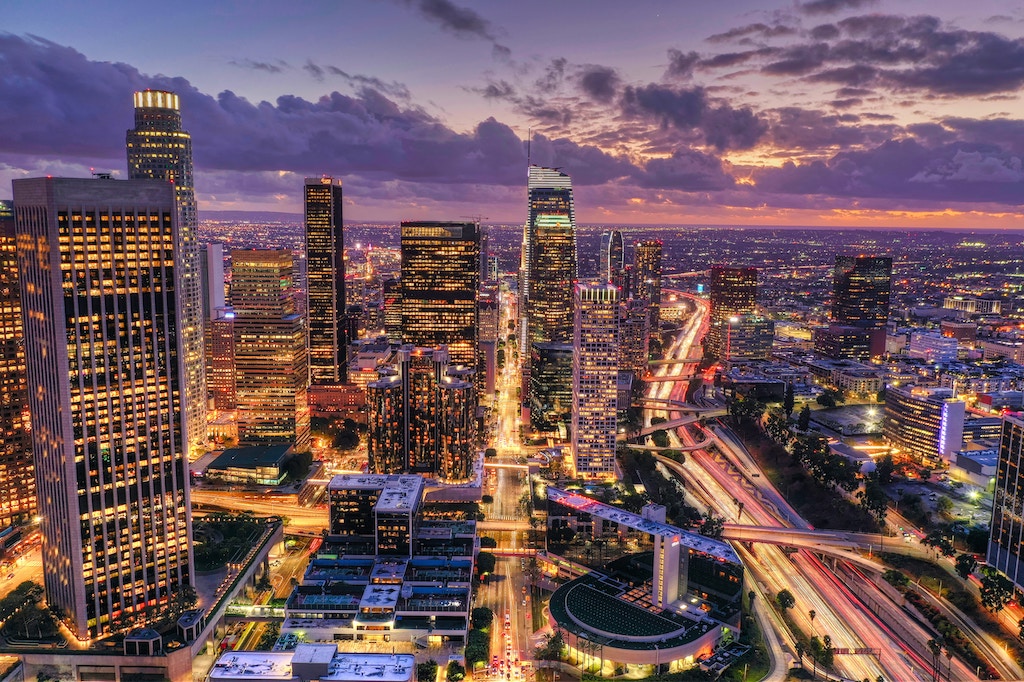SAVE MONEY


COMMUNITY DEVELOPMENT


The Los Angeles Public Bank will prioritize the long-term prosperity of LA communities by funding initiatives that support local economic development, such as affordable housing, green energy infrastructure, conservation measures, and co-ops. By partnering with local financial institutions, the bank will be able to offer loans for economic development, public works financing, and job creation. Small and medium-sized businesses are vital to California’s economy, and the Los Angeles Public Bank can support them by acting as a sole originator or convening loan participations with community banks, credit unions, and community development financial institutions (CDFIs). This will help to keep money within the local economy and build wealth within the community.
Some examples of the types of local projects that the Los Angeles Public Bank could fund include:
• Affordable and supportive housing and neighborhood stabilization efforts by extending credit lines through the public bank’s loan portfolio. In partnership with local lenders, a public bank can lower the cost of financing housing developments because it won’t be bound by the need to maximize profit margins. By centralizing financing and merging multiple funding sources at reduced costs, a public bank can expedite affordable housing projects in LA, helping address the City’s housing crisis cost-effectively.
• Working with local financial institutions, public banks will provide access to capital, helping them to develop and scale their operations. The public bank can incorporate racial equity mandates, prioritizing investments in historically marginalized communities.
• Public banks promote economic development by lending to small businesses, affordable housing, and infrastructure projects, without the need for costly bonds. Profits are reinvested in the community, reducing dependence on large commercial banks and allocating funds for LA priorities. Loan repayments return to the City instead of private shareholders, ensuring benefits support local growth and community well-being.
• The transition towards decarbonization and renewable energy. The German Sparkassen/KfW public banking networks have funded over 70% of the country’s investment in renewable energy infrastructure. Renewables are now Germany’s largest source of energy, with one-third of the nation’s electricity coming from wind and solar.
• Enterprises that alleviate wealth inequality by making capital available to those that corporate banks exclude, such as Black and Brown households and businesses, women-owned businesses, single-parent households, worker cooperatives, and non-traditional forms of home ownership.
• Low-interest or interest-free loans for students to invest in education and stimulate the economy.
FISCAL RESPONSIBILITY


The municipal public banking movement calls for the creation of banks that are chartered with social and environmental responsibility as a core mandate. To ensure that these banks operate in a transparent and ethical manner, the boards of directors will be held to high standards of transparency and integrity. The lending activities of the Los Angeles Public Bank will be subject to strict mandates that require the board and staff to adhere to the bank’s founding principles and fulfill its public policy goals. This will ensure that the bank operates sustainably and ethically, and serves the best interests of the community.
LOCAL AUTONOMY


Cities often pay high fees to corporate banks for their services. For example, the City of Los Angeles pays over $1 billion annually in debt servicing, which goes to Wall Street banks that often invest in distant places and harmful initiatives such as fossil fuel production. A Los Angeles municipal bank would allow city residents to reclaim public dollars by keeping the money in our communities and having a say in which projects are financed. Public banks prioritize the public good within the community rather than maximizing profits for a small group of investors. Public bank revenue and profits are returned to the public, increasing the bank’s lending capacity and benefiting the local economy.
